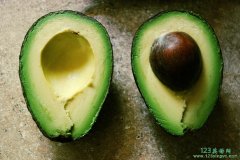高考英语阅读理解100篇 20-50篇(4)
编辑:高中作文网 阅读 次
Frequency of bathing today is partly a matter of habit. People know that bathing for cleanliness is important to health, Doctors know that dirty bodies increase the chance of diseases. As a result, in the United States, people generally bathe often. Some people bath once a day at least. They consider a daily bath essential (=necessary) to good health.
1. A water system for baths was built by over 3,000 years ago.
A. the Romans B. the Greeks C. the Americans D. the Europeans
2. Dirty bodies can .
A. ruin one’s business B. cause disease
C. drive customers away D. cause good health
3. In the 18th century doctors believed that being clean was .
A. unimportant B. good for health C. harmful D. important
4. The underlined word perfume probably means .
A. a sweet smelling substance B. good health
C. a strange smelling substance D. large wealth
5. Which of the following gives the main idea of the passage?
A. Everybody in America takes a daily bath.
B. A bath a day keeps the doctor away.
C. Taking baths has become popular in the world.
D. Bathing has become easier and cheaper.
43、(1分)
One Sunday, Mark decided to go sailing in his boat with his friend Dan, but Dan happened to be away. Dan’s brother John offered to go instead though he did not know anything about sailing. Mark agreed and they set out to sea.
Soon they found themselves in a thick fog. Mark was sure they would be hit by a big ship. Fortunately he saw a large buoy (浮标) through the fog and decided to tie the boat to it for safety. As he was getting onto the buoy, however, he dropped the wet rope. The boat moved away in the fog carrying John, Who did not know how to use the radio. He drifted (漂流) about and was not seen until twelve hours later.
Mark spent the night on the buoy. In the early morning he fell asleep. He was having a bad dream when a shout woke him up. A ship, the Good Hope, came up and he climbed onto it and thanked the captain. The captain told him that John had been picked up by another ship and the ship’s captain had sent out a message. “Without the message I would not have found you on the buoy,” he said.
1. Why didn’t Mark and Dan go sailing together?
A. Dan asked his brother to go instead B. Dan was in some other place
C. Mark was in some other place D. Mark would like to go with John
2. Mark tried to tie the boat to the buoy so that .
A. he could spend the night on it while John was looking for help
B. he and John could go sailing again when the fog cleared
C. it wouldn’t be hit by other ships
D. he might be picked up by a passing ship
3. John and Mark became separated because .
A. there wasn’t room for both John and Mark on the buoy
B. John couldn’t control the boat and drifted away
C. Mark thought it safe to stay on the buoy but John didn’t
D. John had to stay in the boat to radio for help
4. What made it possible for Mark to be found on the buoy?
A. John told people where to look for him.
B. John radioed to the Good Hope to get him.
C. He shouted when he caught sight of the Good Hope.
D. The captain saw him as the fog cleared.
5. The word he in the last sentence refers to .
A. the captain that got the message B. the captain that sent the message
C. John D. Mark
44、(1分)
High in the Swiss Alps many years ago, there lived a lonely shepherd boy who longed for a friend to share his evenings. One night he saw three old men, each holding a glass.
The first old man said: “Drink this liquid and you shall be victorious in battle.”
The second old man said: “Drink this liquid and you shall have countless riches.”
The last old man said: “I offer you the happiness of music----- the horn(号角).”
The boy chose the third glass, The next day, he came upon a great horn, ten feet in length, When he put his lips to it, a beautiful melody(旋律) floated across the valley. He had found a friend.
So goes the legend(传说) of the horn, First known in the ninth century, the horn was used by herdsmen(牧人) to call cattle, for its deep tones echoed(发出回声) across the mountainsides. Even today, on a quiet summer evening, its music can be heard floating among the peaks(山顶).
1. What detail about the shepherd boy does the passage tell us?
A. His lonely job B. His age, C. His name D. His singing ability
2. Why did the boy choose to drink the glass offered by the last old man?
A. The boy liked the old man. B. The boy didn’t like the other old man.
C. The boy loved music. D. The boy was thirsty.
3. After the shepherd boy found the horn, he discovered it was _____.
A. stolen from someone else B. very easy to carry with him
C impossible to play D. like a new-found friend
4. Today the horn is heard in the Swiss Alps _____.
A. when it snows B. in summer C. when it rains D only in winter
5. Which of the following would be the best title for the passage?
A. The Hobbies of Shepherd Boys B. The Legend of the Horn
C. The History of the Swiss Alps D. The Dreams of Shepherd Boys
45、(1分)
A pretty, well—dressed young lady stopped a taxi in a big square, and a said to the driver, “Do you see that young man at the other side of the square?”
“Yes,” said the taxi driver. The young man was standing outside a restaurant and looking impatiently (不耐烦地) at his watch every few seconds.
“Take me over there,”said the young lady.
There were a lot of cars and buses in the square, so the taxi driver asked, “Are you afraid to cross the street?”
“Oh, no!” said the young lady. “But I promised that I would meet the young man for lunch at one o’ clock, and it is now a quarter to two. If I arrive in a taxi, it will at least seems as if I had tried not to be late.”
1. How did the young woman get to the square?
A. She arrived in a taxi. B. She drove there in a car.
C. She got there by bus. D. The story doesn’t tell us.
2. Why did the lady stop the taxi?
A. Because she didn’t want to be late for her appointment(约会).
B. Because she wanted to get out of the taxi.
C. Because she wanted to go to the restaurant in it.
D. Because she was afraid of walking across the street.
3. The young man at the other side of the square
A. had probably been waiting for a long time.
B. had some problem with his watch.
C. was probably a waiter of the restaurant.
D. was someone the young lady didn’t want to see.
4. The young lady was
A. clever at making excuse. B. not late at all.
C. 45 minutes earlier. D. 15 minutes late.
5. Had she tried not to be late?
A. Yes, she had tried her best.
B. No, she was just pretending that she had tried.
C. Yes, she had tried but she was still late.
D. No, she thought being late was better than being early.
46、(1分)
A very strict officer was talking to some new soldiers whom he had to train. He had never seen them before, so began, “My name is Stone, and I’m even harder than stone, so do what I tell you or there’ll be trouble. Don’t try any tricks (诡计) with me, and then we’ll get on well together.”
Then he went to each soldier one after the other and asked him his name, “Speak loudly so that everyone can hear you clearly,”he said, “and don’t forget to call me ‘sir’.”
Each soldier told him name, until he came to the last one. This man remained silent. and so Captain Stone shouted at him, “when I ask you a question, answer it! I’ll ask you again: What’s your name, soldier?”
The soldier was very unhappy, but at last he replied, “My name’s Stonebreaker, sir,” he said nervously (紧张地).
1. The officer was strict
A. because the soldiers were new. B. with any of his soldiers, new or old.
C. because he was named Stone. D. only when he was before soldiers.
2. According to what the officer said,
A. obeying his orders would sometimes bring no trouble.
B. trouble would come if anybody made tricks.
C. he always got on well with his soldiers.
D. he often had trouble with his soldiers.
3. The last soldier remained silent because
A. he didn’t like the way the officer spoke to them.
B. he wanted to see what would happen if he disobeyed his order.
C. the question was difficult for him to answer.
D. he was afraid the officer would be angry when he heard his name.
4. According to the officer, how to answer the question,“How old are you ?”
A. (sadly)Twenty, sir. B. (clearly)Twenty.
C. (loudly)Twenty, sir D. (quickly)Ten years younger than you, sir
5. Which is the best title (题目) for the passage?
A. A Clever Answer B. A Terrible Answer
C. A Sorry Answer D. A Strange Answer
47、(1分)
Paul couldn’t sleep last night. He woke up early and sat up, and then he lay down again. He felt terrible. “I must be sick,” he thought. “but I must study for that test.”
He got up and looked for his history notebook. He finally found it under a pile of clothes on a chair. He went over his history notes, but he couldn’t remember any of the facts in the notes. “What shall I do?” he thought. He felt terrible.
Just then Paul’s telephone rang. He put down his notebook and picked up the telephone.
“Good morning,” Jack’s voice said, “You must be wrong about that test.”
“What do you mean?” Paul asked weakly.
“We’re not going to have the test today.” Jack said. “I wrote down the date in my notebook. The test will be next Wednesday; it isn’t today. How do you feel this morning?”
“Fine,” said Paul. “Just fine!” Suddenly he really felt fine.
1. Paul felt uneasy because he
A. was seriously ill. B. was too tired.
C. was worried about the coming test. D. couldn’t find his history notebook.
2. It seemed that Paul
A. was good at history. B. liked to study history.
C. lost interest in history. D. was ready for the history test.
3. What made Paul feel fine at once?
A. The telephone call. B. the coming test.
C. Jack’s notebook D. The fact that the test was not to be given that day.
4. “How do you feel this morning?” From this question we can see Jack
A. knew Paul. B. knew Paul very well.
C. wanted to help Paul with his history. D. would lend Paul his notebook..
5. We can guess from the passage that
A. Jack was as poor at history as Paul. B. Jack was as good at history as Paul.
C. Jack was better at history than Paul. D. Jack was poorer at history than Paul.
48、(1分)
The Antarctica is a actually a desert. It is the only continent on the earth without a river or a lake.
The Antarctica is all ice all year round. The warmest temperature ever recorded (所记录的) there is zero, at the South Pole. Explorers (探险家) used to think that a place so cold would have a heavy snowfall. But less than ten inches of snow falls each year. That is less than half an inch of water. Ten times that much moisture (水份) falls in parts of the Sahara.
The little snow that falls in Antarctica never melts (融化). It continues to pile up deeper and deeper year after year and century after century. When the snow gets to be about eighty feet deep it is turned to ice by the weight of snow above it .
1. Antarctica is called a desert because it
A. is sandy. B. has the same temperature as a desert.
C. has little moisture and no lakes or rivers. D. there are no people there.
2. Antarctica has
A. ten times as much moisture as the Sahara.
B. the same amount of moisture as the Sahara.
C. about one—tenth of the moisture of the Sahara.
D. none of the above.
3. The snow in Antarctica is very deep because it
A. never stops falling. B. piles up year after year.
C. never melts. D. both B and C.
4. The snow turns to ice when
A. it gets wet. B. the next snowfall comes.
C. the temperature gets colder. D. the snow above it is heavy enough.
5. The best title (题目) for the passage is
A. A Strange Continent B. An Ice Continent
C. Snowfall at the South Pole D. The World’s Desert



